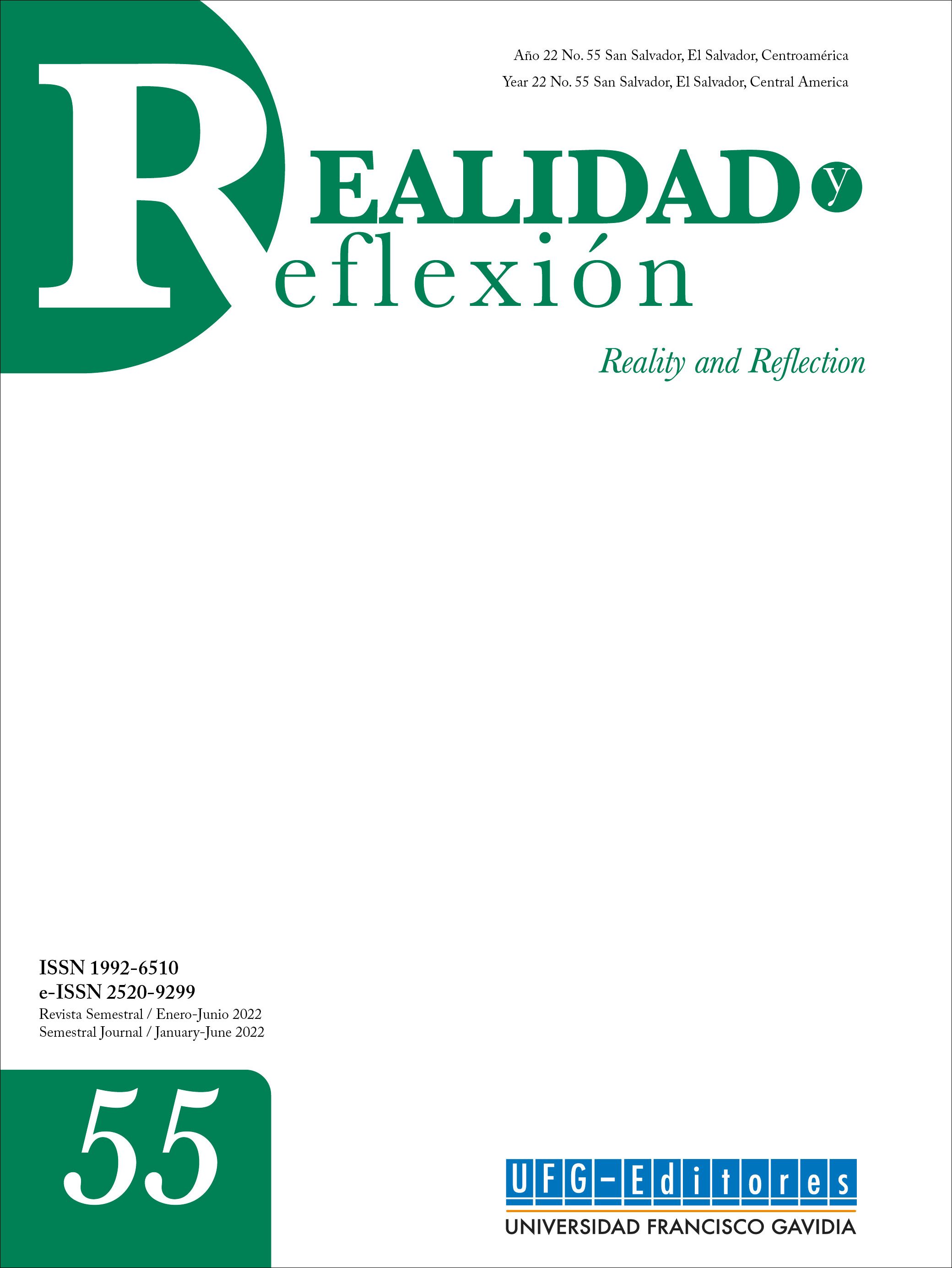The acquisition of prudence, virtue and self-esteem in human formation
DOI:
https://doi.org/10.5377/ryr.v1i55.14432Keywords:
Aristotle, Ethics, Education, Philosophy, AnthropologyAbstract
Prudence, virtue, happiness and self-esteem are some of the concepts that Aristotle has bequeathed to us in order to understand that the education of the human being is not based on the acquisition of knowledge and skills, but on the "construction" of his personality. It will be precisely in such a construction process where the interaction of the aforementioned elements can be appreciated; those elements converge into a personality molded on the basis of life experiences that develop an ethical-moral sense of the human being.
Downloads
976
Downloads
Published
How to Cite
Issue
Section
License

This work is licensed under a Creative Commons Attribution-NonCommercial-ShareAlike 4.0 International License.
© Universidad Francisco Gavidia
Instituto de Ciencia, Tecnología e Innovación (ICTI)
Reality and Reflection
The content and opinions expressed in the publication are the responsibility of the authors of the published articles. The authors assign the publishing and publishing rights, in printed and digital version, to the Universidad Francisco Gavidia.
Proof of originality and assignment of publication rights
The authors must sign a certificate in which they indicate that the text presented for publication is original, unpublished and that it has not been sent for review in another academic publication; In turn, the authors assign the rights of publication and publication to Francisco Gavidia University. The format of this record will be sent through the emails: editores@ufg.edu.sv and jlozano@ufg.edu.sv
The journal Reality and Reflection is housed in the institutional dissemination platforms (web page and in the repository), as well as in databases and other pages of scientific dissemination. The publications of the Francisco Gavidia University are subject to the Salvadoran copyright law, contemplated in the Intellectual Property Law https://www.asamblea.gob.sv/
The content of the work is the sole responsibility of the author, therefore, if for any reason or reason, direct or indirect, the Editor is obliged to pay any compensation to a third party derived from the work of the author, whether it is established in a transaction, agreement or final or enforceable judicial sentence, the Editor may repeat against the Author for the total amount of compensation, plus adjustments, interests and costs that correspond.
It will be the obligation of the UFG to grant five copies of the publication which will be delivered at the UFG Editores headquarters in San Salvador.

